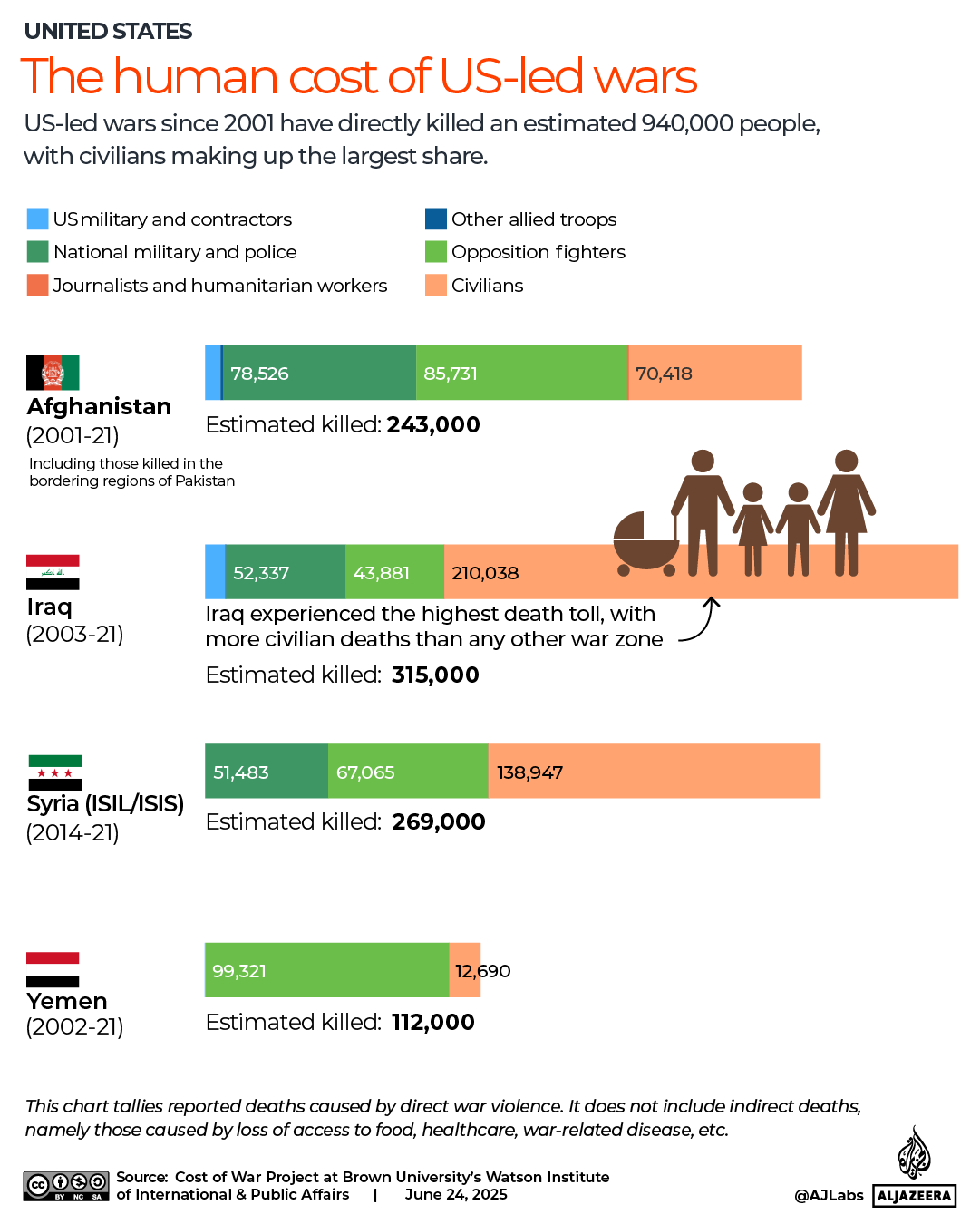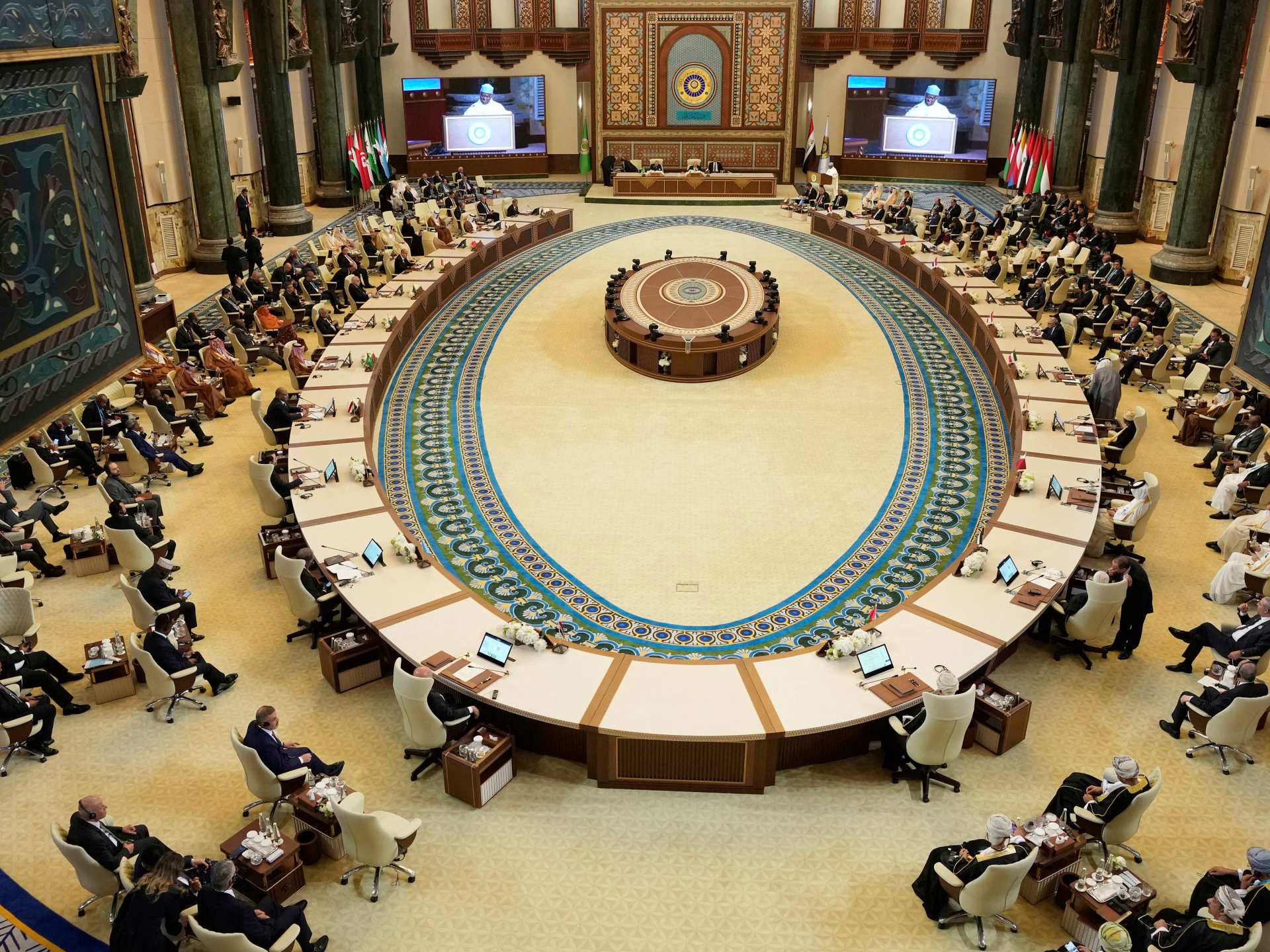Gunfight in Baghdad kills one as paramilitary group storms ministry | Conflict News
Iraqi police clashed with Popular Mobilisation Forces in Baghdad after they stormed an Agriculture Ministry building.
At least one police officer was killed and 14 fighters detained after a gun battle erupted in Iraq’s capital with members of the Popular Mobilisation Forces (PMF), a state-sanctioned paramilitary umbrella that includes groups loyal to Iran.
The violence on Sunday broke out in Baghdad’s Karkh district when PMF fighters stormed a Ministry of Agriculture building during the appointment of a new director, the Interior Ministry said.
The gunmen disrupted an official meeting, stirring panic among staff and an emergency police response team. Police responding to the scene “came under fire”, also resulting in injuries among security personnel.
The ministry said “it would not tolerate any party attempting to impose its will by force and threaten state institutions”.

Group ‘does not want to escalate’
The PMF, known locally as Hashd al-Shaabi, is composed mainly of Shia paramilitaries formed to fight ISIL (ISIS), but has since been formally integrated into Iraq’s armed forces. Several of its factions maintain close ties to Tehran.
Security sources and witnesses inside the building said the fighters aimed to block the replacement of the former director. Hospital and police officials confirmed one officer was killed and nine others were wounded in the clash.
A statement from Iraq’s Joint Operations Command, which reports to Prime Minister Mohammed Shia al-Sudani, said the detained gunmen were referred to the judiciary. Those involved belonged to PMF brigades 45 and 46, units widely linked to Kataib Hezbollah, one of Iraq’s most powerful Iran-aligned militias.
An unnamed member of Kataib Hezbollah told AFP news agency that a fighter from the group was killed and six others were wounded. The group “does not want to escalate” and will allow the judiciary to take its course, the group member said.
In response to the escalation, al-Sudani ordered an investigative committee to look into the events.
The PMF’s continued influence in Iraqi politics and its armed confrontations with state institutions have raised concerns over the fragility of Iraq’s security apparatus, and the blurred lines between formal authority and powerful militia.
Battle for influence
Over the years since the 2003 United States invasion of Iraq, a battle has played out in the country between Iran and the US for government influence. Among those working in alignment with Iran are a number of members of the PMF, which emerged in 2014 to fight ISIL.
In 2017, the PMF’s legitimacy was codified into law against the wishes of the Iraqi Ministries of Interior and Defence, and was brought under the oversight of Iraq’s national security adviser.

